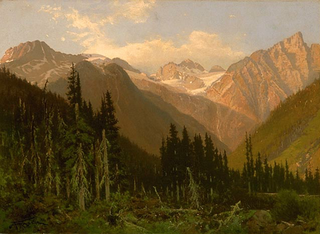
Education in Canada is for the most part provided publicly, funded and overseen by federal, provincial, and local governments. Education is within provincial jurisdiction and the curriculum is overseen by the province. Education in Canada is generally divided into primary education, followed by secondary education and post-secondary. Within the provinces under the ministry of education, there are district school boards administering the educational programs.

The Canadian Coast Guard is the coast guard of Canada. Formed in 1962, the coast guard is tasked with marine search and rescue, communication, navigation and transportation issues in Canadian waters, such as navigation aids and icebreaking, marine pollution response and providing support for other Canadian government initiatives. The coast guard operates 119 vessels of varying sizes and 22 helicopters, along with a variety of smaller craft. The Canadian Coast Guard is headquartered in Ottawa, Ontario, and is a Special Operating Agency within Fisheries and Oceans Canada.
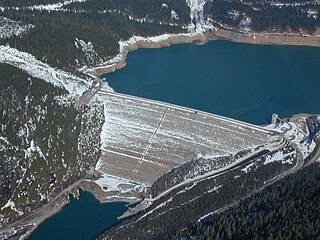
Mica Dam, a hydroelectric dam spanning the Columbia River 135 kilometres north of Revelstoke, British Columbia, Canada, was built as one of three Canadian projects under the terms of the 1964 Columbia River Treaty and is operated by BC Hydro. Completed in 1973 under the terms of the treaty, the Mica powerhouse had an original generating capacity of 1,805 megawatts (MW). Mica Dam, named after the nearby settlement of Mica Creek and its associated stream, in turn named after the abundance of mica minerals in the area, is one of the largest earthfill dams in the world. The reservoir for the dam is Kinbasket Lake, which was created when the dam was built. Water from the dam flows south directly into Revelstoke Lake, the reservoir for the Revelstoke Dam. Mica Dam is the tallest dam in Canada and second tallest in North America after the Chicoasén Dam in Mexico and it is the farthest upstream dam on the Columbia River. The dam's underground powerhouse was the second largest in the world at the time of its construction, and was the first 500 kV installation of sulphur hexafluoride (SF6) insulated switchgear in the world.

Rogers Pass is a high mountain pass through the Selkirk Mountains of British Columbia used by the Canadian Pacific Railway and the Trans-Canada Highway. The pass is a shortcut across the "Big Bend" of the Columbia River from Revelstoke on the west to Donald, near Golden, on the east. The pass was discovered on May 29, 1881, by Major Albert Bowman Rogers, a surveyor working for the Canadian Pacific Railway. A second pass was named for Rogers in 1887 in Montana, c.373 miles to the south-east.

The nonprofit National Ski Patrol (NSP) is the largest winter education organization in the world. The NSP provides education, outreach, and credentialing related to outdoor recreation and safety. It is currently composed of more than 26,000 members who serve in over 600 patrols. NSP members, both volunteer and paid, ensure the safety of outdoor recreation enthusiasts in ski areas throughout the United States of America and certain military areas of Europe. For its dedication to the promotion of public safety in skiing and other winter sports, the group was granted a congressional charter under Title 36 of the United States Code in 1980.
Public Safety Canada, formerly known as Public Safety and Emergency Preparedness Canada (PSEPC), legally incorporated as the Department of Public Safety and Emergency Preparedness, is the department of the federal government of Canada with responsibility for protecting Canadians and helping to maintain a peaceful and safe society.

Capilano University (CapU) is a public university based in North Vancouver, British Columbia, Canada, with programming serving the Sunshine Coast and the Sea-to-Sky corridor. It was founded in 1968 as Capilano College by school boards and residents of the North Shore and Howe Sound based on the need for a public institution serving the local communities. Initial enrollment was 784 students. In 2008, the province changed Capilano College's designation to a university and, as of 2018, it has grown to enroll approximately 8,500 students per year. Capilano University's academic offerings include liberal arts, professional, and career programs which lead to certificates, diplomas, and degrees at the primarily undergraduate level.
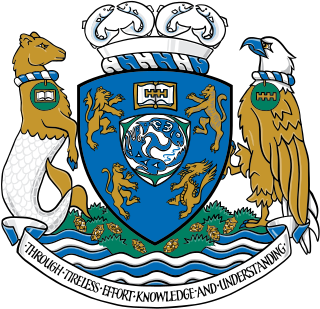
Kwantlen Polytechnic University is a public degree-granting undergraduate polytechnic university in British Columbia with campuses in Surrey, Richmond, Cloverdale, and Langley. KPU is one of the largest institutions by enrolment in British Columbia with a total of 20,000 students and 1,400 faculty members across its four locations, encompassing the Metro Vancouver district. KPU provides undergraduate and vocational education including bachelor's degrees, associate degrees, diplomas, certificates, apprenticeships, and citations in more than 120 diverse programs. The school operates largely as an undergraduate polytechnic university and also functions as a vocational and technical school offering apprenticeships for the skilled trades as well as diplomas in vocational education for skilled technicians and workers in support roles in professions such as engineering, accountancy, business administration, nursing, medicine, architecture, and criminology.

The National Search and Rescue Program (NSP) is the name given by the Government of Canada to the collective search and rescue (SAR) activities in Canada. Until 2015, the NSP was administered by the National Search and Rescue Secretariat (NSS).

Strathcona-Tweedsmuir School is a private university prep school in Okotoks, Alberta, Canada. It has students in Grades K to 12. Its Grade 12 provincial exam scores are consistently some of the most highly ranked in the province. Strathcona-Tweedsmuir is Southern Alberta's first full IB World School, and Alberta's only independent school authorized to deliver IB Programmes in Grades 1 through 12. Strathcona-Tweedsmuir School ranks well in the annual Fraser Institute surveys. Strathcona is also an active participator in the CESI program, and often volunteers teachers for inter-school evaluatory interaction. STS is also a member of Round Square and CAIS.
Norm Macdonald is a former Member of the Legislative Assembly of British Columbia and a member of the British Columbia New Democratic Party. He was elected to the Legislative Assembly from the riding of Columbia River-Revelstoke in the 2005 provincial election and re-elected in the 2009 election and the 2013 election, though his party formed the official opposition to a BC Liberal majority government each time. He served various critic roles and on several committees.
The Canadian Avalanche Association (CAA) is a non-profit organization that supports avalanche practitioners in Canada by organizing professional training courses, providing a system for information exchange and ensures that members meet the highest practise standards to secure confidence in their avalanche safety programs. Being a member of the CAA requires knowledge of evolving avalanche-related sciences, specialized technical training, and extensive operational experience. CAA members serve the public by competently evaluating avalanche hazards and managing risks to protect people and property from avalanches. CAA members may work for ski resorts, industry and transportation, or public avalanche safety organizations like Avalanche Canada; helicopter, cat or ski/snowboard guiding operations; as avalanche consultants, as instructors of professional or recreational avalanche courses, researchers and more.
A patient safety organization (PSO) is a group, institution or association that improves medical care by reducing medical errors. In the 1990s, reports in several countries revealed a staggering number of patient injuries and deaths each year due to avoidable adverse health care events. In the United States, the Institute of Medicine report (1999) called for a broad national effort to include the establishment of patient safety centers, expanded reporting of adverse events and development of safety programs in health care organizations. The organizations that developed ranged from governmental to private, and some founded by industry, professional or consumer groups. Common functions of patient safety organizations are data collection and analysis, reporting, education, funding and advocacy.

Higher education in Yukon is shaped by the territory's small population in a relatively large geographic area. The history of higher education went hand in hand with the establishment of a representative territorial government in 1979. Yukon School of Visual Arts and Yukon College are the only two higher education institutions in Yukon. Yukon College issues certificate, diploma, and partial and some full degree programs. The college is a community college and as a result it provides in addition to its academic and professional program, Adult Basic Education/literacy programs.
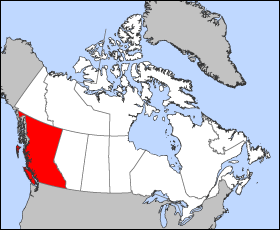
Higher education in British Columbia is delivered by 25 publicly funded institutions that are composed of eleven universities, eleven colleges, and three institutes. This is in addition to three private universities, five private colleges, and six theological colleges. There are also an extensive number of private career institutes and colleges.

Sir Michael Barber is a British educationist and founder and chairman of Delivery Associates, an advisory firm focussed on working with governments and other organisations to help them deliver improved outcomes for citizens. He is a global expert on implementation of large-scale system change, a leading authority on education systems and education reform, and was knighted in 2005 for his contributions to improving government.
David Wilks is a Canadian politician and a former Member of Parliament in the House of Commons of Canada. He was elected in the Kootenay—Columbia riding as a member of the Conservative Party of Canada in the 2011 election. In the 41st Canadian Parliament, Wilks was appointed to the Standing Committee on Aboriginal Affairs and Northern Development and introduced one piece of legislation, a private members bill called An Act to amend the Criminal Code (C-299) which sought a minimum sentence of five years in prison for someone convicted of kidnapping a person under the age of 16.
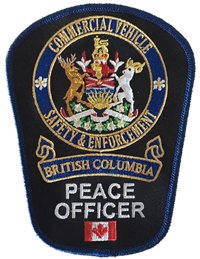
British Columbia Commercial Vehicle Safety & Enforcement (BCCVSE) is a provincial law enforcement agency that is responsible for the compliance and enforcement of the commercial transport sector, protection of the environment and transportation infrastructure of British Columbia, increasing road safety and protecting the motoring public.




